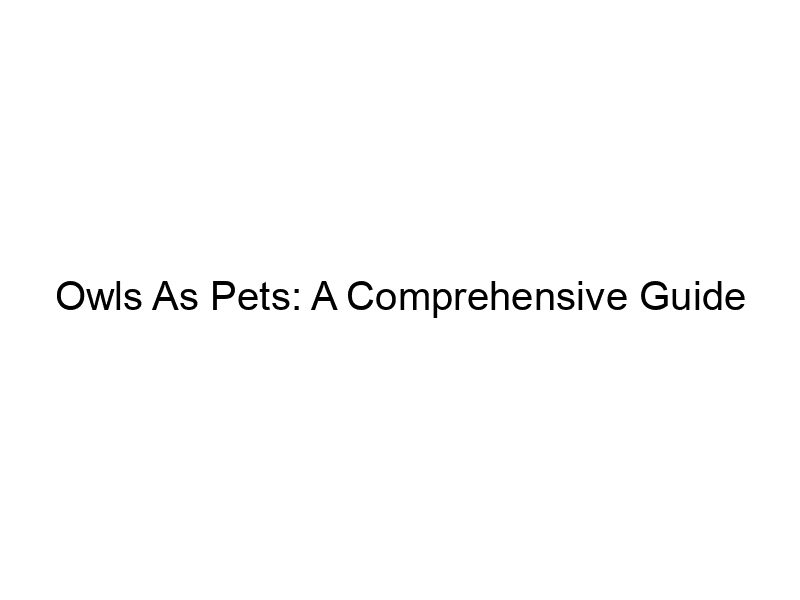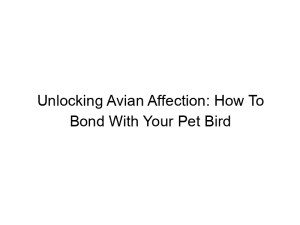Owning a pet is a big decision, and choosing the right animal is crucial for both your well-being and theirs. Are Owls Good Pets? The Truth About Keeping an Owl at Home is a question many aspiring exotic pet owners ask. This in-depth guide will explore the realities of owl ownership, covering legal aspects, care requirements, ethical considerations, and more. We’ll delve into the complexities of providing for an owl’s needs, helping you make an informed decision. You’ll learn about their unique dietary requirements, the significant space they need, and the potential challenges involved in caring for these magnificent birds of prey.
Owls are wild animals with deeply ingrained predatory instincts. They require specialized care that mimics their natural habitat as closely as possible. Their natural behaviors, such as hunting, screeching, and nocturnal activity, aren’t
easily adapted to a domestic environment. Forcing an owl to live in a human-centric setting can lead to stress, behavioral problems, and even injury. Understanding these intrinsic characteristics is paramount to responsible ownership.
Dietary Requirements: A Specialized Diet
Owls are carnivorous, and their diet consists primarily of small mammals, birds, and insects. Providing a balanced and nutritionally complete diet for an owl in captivity requires significant effort, research, and expense. This often involves sourcing whole prey items like mice, rats, or quail, which can be challenging to obtain and store. Inadequate nutrition can lead to various health issues and a shorter lifespan.
Legal and Ethical Considerations of Owl Ownership
Permitting and Regulations: Varying Laws
Owning an owl is highly regulated in most countries and regions. Obtaining the necessary permits and licenses can be a complex and lengthy process. These regulations exist to protect owls from irresponsible ownership and to maintain wild populations. Failure to comply with these laws can lead to hefty fines and legal repercussions. Research your local and national laws thoroughly before even considering acquiring an owl.
Ethical Concerns: Wild Animals in Captivity
Owning a wild animal raises significant ethical questions. Owls are not domesticated creatures; they are adapted to a specific wild environment and thrive within their natural ecosystems. Keeping an owl as a pet can deprive it of the opportunity to live a natural life, engage in natural behaviors, and contribute to the health of its wild population. This raises concerns about animal welfare and the ethical implications of private ownership of wild animals.
The Practical Realities of Owling Ownership
Housing Requirements: Spacious and Enriching Environments
Providing adequate housing for an owl requires significant space and resources. Their enclosures need to be substantial in size, appropriately secured, and enriched with perches, climbing structures, and other features that mimic their natural environment. A cramped or inadequately enriched environment can cause stress and behavioral problems. Building or purchasing an appropriate enclosure will represent a significant financial investment.
Veterinary Care: Specialized Expertise Needed
Owls require specialized veterinary care. Finding an avian veterinarian with experience in treating owls can be a challenge, especially in certain regions. The cost of veterinary care for owls can be substantial, often exceeding the cost of care for more common pets. Unexpected illnesses or injuries can incur high veterinary bills.
Financial Commitment: Significant Upfront and Ongoing Costs
The costs associated with owl ownership extend beyond the initial acquisition. These include the costs of housing, food, enrichment, veterinary care, and permits, which can be very substantial and ongoing. The financial commitment is often underestimated by potential owners. Realistic budgeting is essential before even considering acquiring an owl.
Comparing Owls to Other Exotic Pets
Alternatives to Owls: Equally Fascinating Animals
There are many other fascinating exotic pets that require less specialized care and have fewer ethical and legal restrictions. Before committing to owl ownership, researching alternative exotic pets that align better with your resources and experience level is crucial. These might include certain species of parrots, birds of prey, or reptiles.
Training and Handling Owls
Handling and Training: An Experienced Owner’s Task
Handling and training owls requires specialized knowledge, patience, and experience. Owls are powerful birds of prey with sharp talons and beaks, capable of causing significant injury. Improper handling can result in injury to both the owl and the handler. Professional training from an experienced bird handler is highly recommended.
The Emotional and Time Commitment
Time Commitment: A Significant Investment
Owning an owl requires a considerable time commitment. They need daily care, attention, and enrichment. Their nocturnal nature requires adjusting your lifestyle to accommodate their needs. Adequate time to interact, feed, clean, and maintain the owl’s enclosure is essential.
Emotional Toll: Demands and Responsibilities
Owl ownership has an emotional toll, too. Owning a wild animal is not without its challenges. The responsibility for an owl’s well-being is great, and you need to be prepared for the demands and responsibilities involved in their care.
Owls as Pets: The Verdict
Weighing the Pros and Cons: A Realistic Assessment
Owning an owl is associated with many rewards and challenges. The majestic beauty, intelligence, and unique nature of these birds of prey are captivating, but it is crucial to be prepared for the considerable responsibilities and long-term commitment required to care for them ethically and successfully. Weighing the pros and cons realistically is paramount before making any decision.
Frequently Asked Questions
Can I get an owl legally?
Legal regulations for owl ownership vary significantly by location. In most places, obtaining a permit or license is required. The process usually involves demonstrating appropriate facilities, experience, and financial resources. Check your local wildlife agency for specific regulations.
What do owls eat?
Owls are carnivorous birds. Their diets consist primarily of whole prey items like mice, rats, voles, rabbits, and birds. The specific prey items vary depending on the owl species and their size. Providing a balanced diet tailored to the owl’s species is crucial for its health.
How much space does an owl need?
The required space varies significantly depending on the owl species. A large, well-constructed enclosure that allows for flight and climbing is crucial. Many species need spacious aviaries and tailored environments for their well-being.
How long do owls live?
The lifespan of owls depends on the species and environmental conditions. In captivity, with appropriate care, many species can live for 20-30 years or even longer. Providing a healthy environment and diet greatly influences their longevity.
Final Thoughts
Owning an owl is a significant commitment, demanding extensive resources, dedication, and specialized knowledge. While the majestic nature of these birds can be captivating, the realities of their care far outweigh the romanticized image many hold. The ethical, legal, and financial considerations should never be overlooked. Before even considering the acquisition of an owl, thoroughly research your local regulations, carefully assess your capacity to provide the necessary specialized care, and honestly evaluate your resources. Numerous other captivating pets require fewer demands and could provide a fulfilling animal companionship experience. Ultimately, responsible pet ownership centers around the well-being of the animal, and in the case of owls, that well-being often thrives best within their natural environment.




